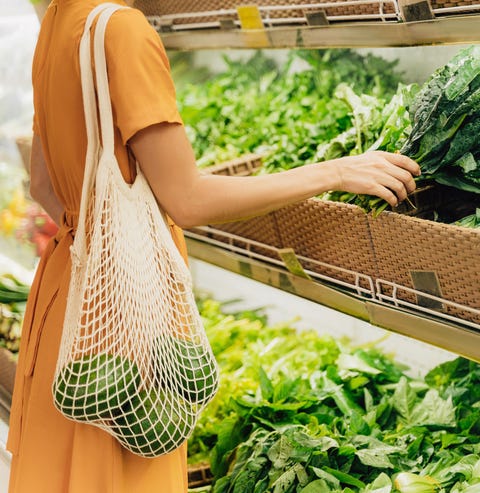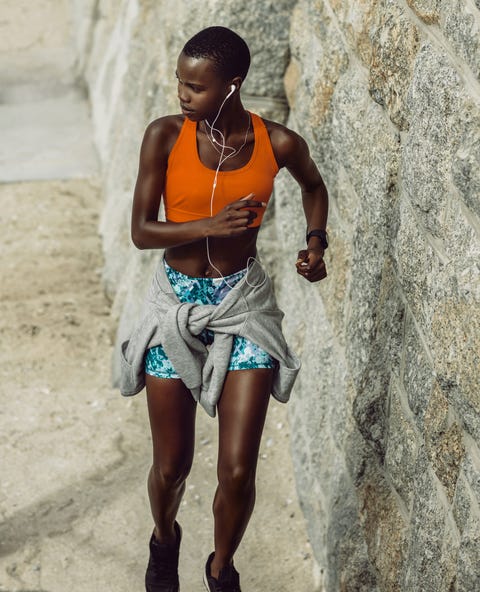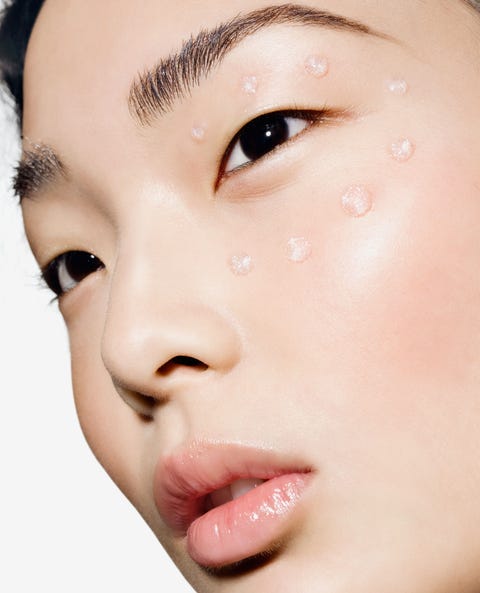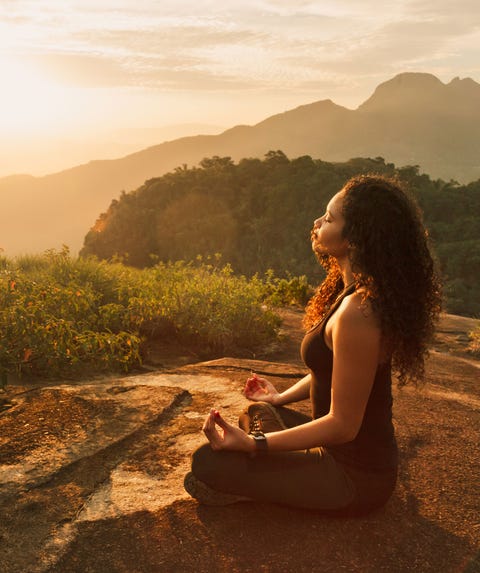As we enter the final quarter of 2022, the effects of the pandemic still linger nearly three years later. And for many, COVID-19 drastically changed how we view our wellness regimens, not to mention, the collective feeling that in times of uncertainty — whether of health, career, or home — it’s up to us to take the lead in establishing self-care routines that boost our head-to-toe well-being.
Despite the pandemic impacting every facet of our lives, we think it’s fair to say folks have been looking at wellness with a fresh new lens. According to a 2020 survey, 80% of American adults said they intend to be more mindful about incorporating and regularly practicing health rituals post-pandemic. But, we have to ask, with the long-term effects of COVID-19 still in the ethos, layered with social injustices, economic tribulation, and powerful climate occurrences, what does this mean for our “total” well-being? How have mindsets (and manners) surrounding one’s health changed, and how can we approach it more sustainably?
With the help of five top-tier experts in their field, from food to fitness, we’ve identified six trends that we predict will be at the forefront of wellness in 2023. Keep scrolling to discover which ones will outlast the effects of the pandemic to redefine the health landscape for years — and decades to come.
More Accessible Healthcare Avenues
Whilst the pandemic has placed massive burdens on healthcare systems across the globe, it’s forged an entirely new (and effective) way we see our healthcare providers: virtually. Utilizing video visits and remote monitoring has taken center stage in our providers’ access to treat non-emergency conditions, freeing up E.R. rE.R.ms for more life-threatening matters, which in turn — provides less strain on our essential workers and first responders.
For perspective, in February 2020, less than 1% of Zocdoc’s total bookings were for telehealth, and by May 2020, that share skyrocketed to roughly 30 – 40%. Furthermore, a 2021 survey by the American Medical Association showed more than 80% of patients have better access to care since using telehealth, while 62% of patients have higher satisfaction since offering telehealth, and three-quarters of Americans said they would like to continue to manage their healthcare virtually.
Renewed Focus on Upcycling Food
A growing number of consumers have adopted a “zero waste” lifestyle, but during the pandemic — food waste still poses a huge problem. Enter upcycling — which is once again growing in popular stature. “Although the concept isn’t new to chefs, the pandemic undoubtedly prompted a shift in how I operate my business,” explains Chef Boris Ginet, restaurateur and owner of Bib Gourmand-nominated restaurant Risbo. Now, he’s focused on creating a “conscious practice I’m passionate about upholding in my restaurant as much as possible.”
From repurposing rotisserie protein to make a “shepherd’s pie special” to saving the cilantro stems most would toss to boast flavor to the house made salsa verde sauce and ever-changing daily soups, it’s safe to say Chef Ginet is heading down the path of long-lasting, sustainable change. It’s a mindset that will cause a significant ripple effect as it could be done at home as well by “repurposing the pulp from juicing to make veggie broth or allowing pulp to dehydrate to make veggie burgers,” adds Ginet.
This easy-to-implement practice can help aid in energy conservation, minimize food insecurity and create healthy, sustainable habits. And, with time, it will undeniably solve sustainability challenges in society and help save our beloved earth.
Writer’s Note: If you would like to upcycle produce/edible ingredients to help feed your community, please consider donating to One Love Community Fridge, a 501(c)3 non-profit helping to feed the community one fridge at a time.
24/7 Fitness Anywhere
With the temporary closure of gyms and studios, personal trainers, fitness instructors, and owners of brick-and-mortar wellness spaces took a huge hit — and if able to, had to make a shift to virtual classes that could reproduce the sense of connection many longed to feel. April Silverman, certified pilates instructor and owner of April Nicole Studios in Williamsburg, Brooklyn, shares that “virtual sessions opened up a whole new world of access and convenience” for her business.
The pandemic afforded many people a more flexible schedule and more time to focus and prioritize self-care. “Grind culture rapidly shifted towards a more wellness-oriented approach,” Silverman adds. Those who continue to work their desk jobs from home can utilize virtual fitness at their discretion as it affords them access to shorter, quicker, private “doses” of movement, if you will. Silverman says, “wellness is not being a bandaid, but a necessary way of being that looks different for everyone.” Fitness will no longer be considered a leisurely activity, but an accepted, necessary norm.
Jyll Hubbard- Salk, a yoga instructor and owner of Urban Asanas, a Black-owned, woman-led yoga studio in Crown Heights, Brooklyn, has broadened her business since the pandemic to provide a holistic space as a way to provide a full spectrum of affordable services for the BIPOC community it resides in. From donation-based yoga to acupuncture and infrared saunas, Jyll says, “my mission is and will always be — to offer the benefits of yoga and holistic care—health, light, spirituality—while maintaining the strength and diversity of the community we serve.”
Writer’s Note: Jyll is currently leading a” Heart Forward” fundraiser to help weather the strain the pandemic has put on her business. Please consider donating here to help save a neighborhood haven in Brooklyn.
An Emphasis on Mental Well-Being
Increased self-care and working from home were the largest byproducts that emerged from the pandemic. But unfortunately, the prevalence of depression and anxiety significantly increased, with 43% of people experiencing more anxiety and 45% more depression. The silver lining? The stigma has lessened around seeking help and Americans are confidently confronting escalating mental health issues.
“The initiative to incorporate digital support was necessary and teletherapy has allowed the world more accessibility,” explains Lia Avellino, LCSW and co-founder of Spoke Circles, an emotional and mental wellness space designed for quality connection. “The idea of getting therapy is much more normalized, and the pandemic has made people more open about their struggles,” she adds.
According to the CDC, the percentage of American adults aged 18- 44 who had received any mental health treatment increased from 18.5% to 23.2% in the last 12 months alone and although it’s unlikely that telemedicine will displace in-person care completely, “illustrating and evolving to a balanced hybrid approach of both virtual and in-person care can be gravely beneficial to one’s mental health journey” says Avellino.
In a May 2022 survey conducted by Zocdoc, 77% of patient respondents indicated they plan to utilize a combination of telehealth and in-person care in the future, while 83% of providers said the future of healthcare will include a combination of both telehealth and in-person visits.
Streamlined Skincare Routines
Simplification will be the name of the game for post-pandemic beauty. Cosmetic products boomed during the first few months of quarantine as we all were home, with more time in the mirror, wearing fewer to no makeup at all.
In a 2022 study, in comparison to 2019, makeup purchases decreased by 19%, only making up 16% of the global market, whereas skincare sales skyrocketed — now making up 42% of the global market that’s expected to generate $177B by 2025 in the U.SU.S.alone. Consumers are growing more interested in sustainability and two major shifts that can be seen across many companies are in refillable beauty packaging and upcycle empties.
According to market research firm Mintel, the reusable packaging market for beauty and cosmetic products increased by 65% from June 2020 to May 2021 solely in the U.S. — and is expected to rise each year.
Writer’s Note: As a beauty expert and esthetician myself, I truly believe the sustainable less is more approach is here to stay.
Leisure Travel for Wellness
After pressing pause on travel commitments, many have vowed to take wellness-driven expeditions to renew their mental, spiritual, and physical well-being moving forward. Not only did the pandemic cause a massive paradigm transformation in wellness-based tourism, but people have emerged with a new outlook that is more focused on *actually* feeling better.
Naturally, there’s a new community doubling down on the old catchphrase, health is wealth. Tanyka Renee, an elite travel entrepreneur turned travel consultant, has visited 111 countries to date and truly feels travel as a wellness practice is on the rise and here to stay. Renee shares, “Some destinations my clients have opted for recently are off-the-beaten-path: Mexico for traditional Mayan ceremonies, Peru to visit Shamans and for solo travelers, Bali and Costa Rica to partake in meditation or spiritual life practices like yoga.” And it doesn’t stop at international travel. People are working from the road more often and taking advantage of their flexible work schedules by “opting for road-trip nature itineraries to Arizona, Utah, and Nevada,” adds Renee.
A 2021 study showed that travel can have a “positive psychological outcome” amid devastating circumstances and even staycations can serve as a means to attain better well-being. Thus, in the post-pandemic era, the need to enrich one’s physical, spiritual, and mental well-being will push people to seek holistic approaches to their health, increasing the global wellness tourism demand — one country at a time.





